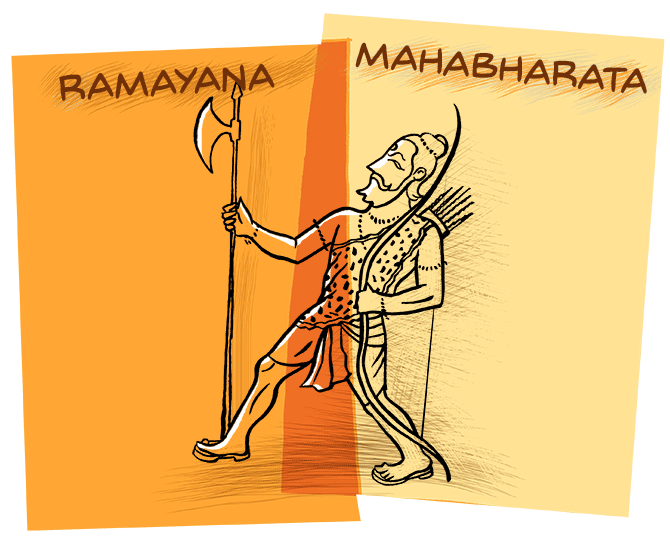The Mahabharata and Ramayana are two of the greatest epics in Indian literature, offering profound lessons that transcend time, culture, and belief systems. Whether one views these epics as historical events or allegorical tales, the philosophical insights they provide remain relevant to our lives today.
The Dilemma of Arjuna: A Lesson in Duty
In the Mahabharata, the central character, Arjuna, finds himself in a moral dilemma on the battlefield of Gurukshetra. He is conflicted about fighting against his relatives and loved ones. Arjuna’s hesitation represents a universal human struggle—how can one fulfill their duty when it conflicts with personal emotions and relationships?
Lord Krishna’s Guidance: The Role of Karma and Dharma
Lord Krishna, Arjuna’s charioteer and guide, addresses this dilemma with profound wisdom. He explains that the battle is not just a personal conflict but a consequence of karma—a result of actions from past lives. Krishna reveals that everything in the universe is under his control and that Arjuna is merely an instrument in the grand design.
Krishna emphasizes that Arjuna’s duty, or dharma, as a warrior is to fight for justice, regardless of personal attachments. By performing his duty without attachment to the results, Arjuna aligns himself with the universal order.
The Power and Restraint of the Divine
One of the key takeaways from Krishna’s advice is the concept of divine restraint. Even though Krishna, as an incarnation of the Supreme Being, has the power to end the war in an instant, he chooses not to. This restraint is not due to a lack of power, but out of respect for the laws of karma and dharma that govern the universe. If even the divine must follow the rules set by the divine itself, how much more should humans adhere to their responsibilities and duties?
The Lesson for Modern Life: Patience and Responsibility
This episode from the Mahabharata teaches us a crucial lesson: patience and responsibility are essential virtues in life. Just as Krishna didn’t intervene directly in the war, we must learn to navigate life’s challenges with patience, understanding that everything unfolds according to a larger plan. By accepting our roles and responsibilities, and by performing our duties without attachment, we can find peace and fulfillment.
Embracing Dharma in Daily Life
We are often faced with difficult choices and moral dilemmas in our daily lives. The teachings of the Mahabharata remind us to stay true to our dharma, even when the path is fraught with challenges. By remaining patient, responsible, and aligned with our higher purpose, we can navigate life’s complexities with grace and wisdom.
Conclusion: Finding Happiness Through Duty and Faith
Ultimately, the wisdom of the Mahabharata and Ramayana teaches us that true happiness comes from fulfilling our duties with faith in the divine order. Whether we believe in the literal truth of these epics or view them as symbolic stories, the lessons they impart are universal. By embodying the principles of dharma, patience, and responsibility, we can lead lives that are both meaningful and content.

